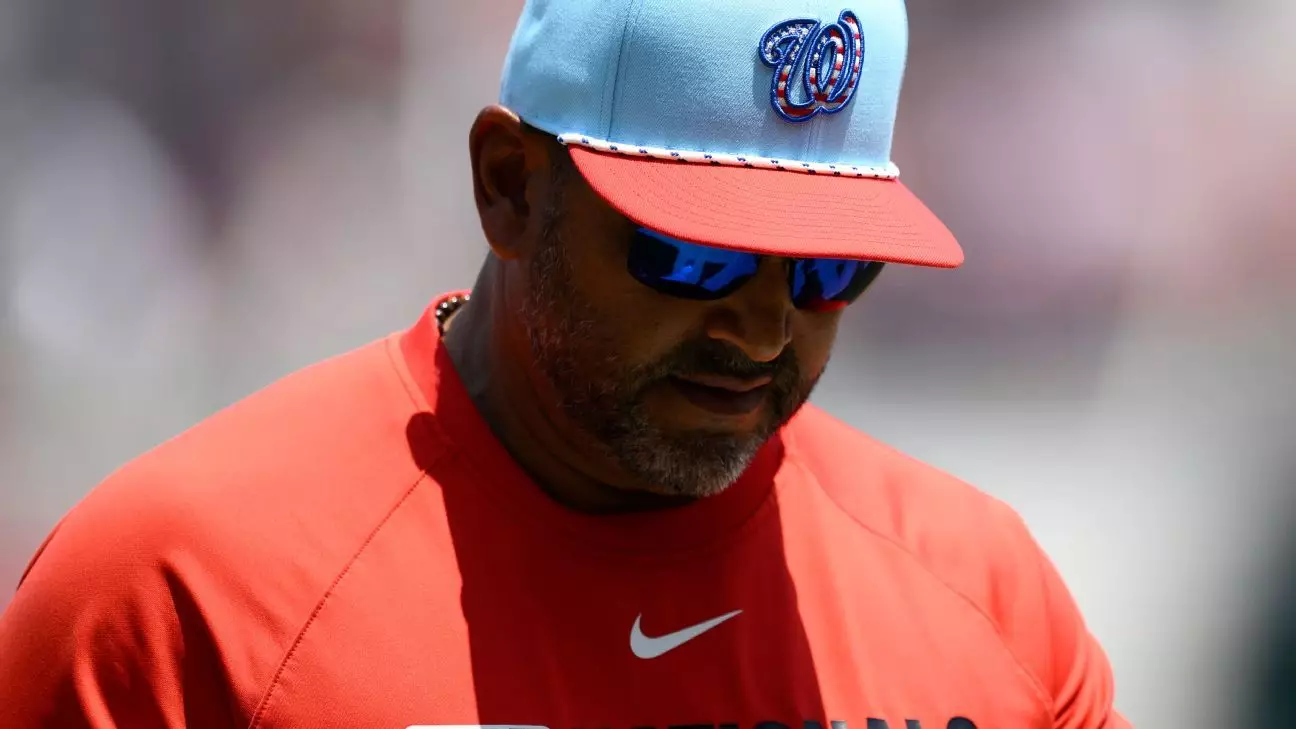The recent dismissal of Mike Rizzo and Davey Martinez from the Washington Nationals marks a significant turning point in the team’s ongoing struggle to reclaim its former glory. While the team did achieve a monumental victory by winning the World Series in 2019, the subsequent years have revealed more about systemic issues than triumphs. The firing, ostensibly a response to poor performance, signals a recognition of failure but also raises questions about whether this move addresses the root causes of the team’s decline.
The Nationals currently sit at the bottom of the National League East, with a dismal record of 37-53, exemplifying the franchise’s stagnation. Their inability to build on past success underscores a deeper organizational problem—one that cannot be cured solely by changing leadership. The decision to sever ties with Rizzo and Martinez, despite their contributions, reflects a desire for a radical shift, but such upheaval often risks further destabilization if not coupled with a strategic and cohesive plan.
The Myth of Fresh Starts and Just Rebuilding
The appointment of Mike DeBartolo as interim general manager is illustrative of an organization attempting to reset without adequate transparency about a long-term vision. Too often, franchises embroiled in failure pin hopes solely on personnel changes, overlooking the significance of cultural overhaul and consistent baseball philosophy. The Nationals’ slow rebuild, characterized by minimal offseason moves and a youth movement that has yet to mature, exemplifies a strategy that may be too cautious or unfocused.
This approach—relying heavily on young talent like James Wood and MacKenzie Gore—may eventually yield dividends, but the current trajectory reveals glaring deficiencies. The team’s offensive struggles, highlighted by an inability to generate runs and frequent squandered scoring opportunities, reflect a talent development process that is neither aggressive nor innovative enough. Merely trusting a young core without bolstering it through meaningful acquisitions displays a shortsightedness that hampers long-term progress.
Leadership Failure or Systemic Shortcomings?
There is valid debate about whether Rizzo and Martinez deserved to be dismissed. Their contributions, particularly Rizzo’s leadership during the team’s ascension to a World Series champion, cannot be dismissed outright. However, their tenure also coincided with persistent failures to establish consistent success. Their exit, while perhaps necessary, hints at a deeper malaise—an organization that has yet to find sustainable strategies for roster management, player development, and competitive excellence.
The Nationals’ reluctance—or inability—to invest heavily in free agency this offseason underscores an organizational apathy towards competing at a high level. Instead of adopting a bold stance to build a resilient roster, they opted for minor signings and trades that do little to address glaring weaknesses. This hesitancy reflects a broader cultural issue: a lack of boldness and a failure to embrace a proactive approach to franchise rebuilding, which is crucial in a sport characterized by peak performance and adaptability.
The Road Forward: Hope or Misguided Optimism?
With new leadership in place, there is a flicker of hope that the Nationals can alter their course. But hope alone is insufficient. The franchise must reconceptualize its approach to player development, scouting, and roster construction. A genuine commitment to fostering young talent, combined with strategic investments in free agency, is essential if Washington hopes to break free from its cycle of mediocrity.
Moreover, the organization faces a cultural challenge: instilling a winning mentality that emphasizes perseverance, accountability, and innovation. The decision to break from the past leadership signals an acknowledgment that the status quo has failed. But without a clear, comprehensive plan that transcends managerial changes, this upheaval risks becoming merely a superficial attempt at revival—a distraction rather than a catalyst for genuine change.
Ultimately, the Nationals’ current trajectory underscores a fundamental truth in baseball and sports at large: success demands more than just changing the person in charge. It requires rebuilding the entire philosophy behind the game plan, nurturing a resilient organizational culture, and making that courageous leap into aggressive, thoughtful investments—both in talent and in strategic vision. Without this, the Nationals are likely to remain mired in frustration, continually oscillating between hope and disappointment.


Leave a Reply